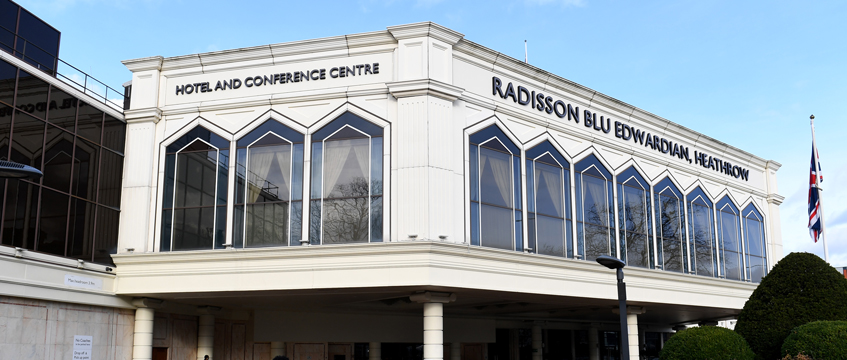The first travellers checked out of hotel quarantine on 26 February 2021 after 11 nights in self-isolation. They were caught by rules introduced the previous week to stop new strains of coronavirus entering the UK. Anyone arriving in England after 15 February 2021 from outside the common travel area (comprising the United Kingdom, the Republic of Ireland, the Isle of Man, and the Channel Islands ) who has transited through or visited a red list of 33 countries must now hotel quarantine with few exceptions.
The 10-day and 11-night quarantine is shorter and more selective than in many other countries, which quarantine almost all international travellers for 14 nights minimum. It is unclear whether the new measures are only temporary, pending a review in April 2021 and potential later relaxation, or a prelude to wider restrictions.
Becoming a quarantine hotel
A quarantine hotel is a managed accommodation facility where residents are confined to their rooms for the duration of their quarantine or until they receive two negative Covid tests. A quarantine package, comprising accommodation, food and tests, must be booked by travellers before arrival for £1,750 per adult.
Approximately 16 hotels, with 4,963 rooms, have been contracted for the scheme but additional capacity may be required. Approximately 1,000 arrivals per day were estimated from red list countries and so a further 58,000 rooms are on standby. Hotels could be suitable to participate if they are close to the approved red list passenger arrival airports and support medical facilities.
Although £50 a night for providing accommodation, three meals a day and seven items of laundry might be less than the usual market rate, this is a regular source of income at a difficult time. Hotels can only open under tight restrictions and English holiday bookings are not permitted until 17 May 2021 at the earliest. The flat fee structure removes the prospect of charging a higher rate for larger rooms but room service and exercise equipment hire present other revenue generating opportunities.
Beware of the challenges
Becoming a quarantine hotel presents more challenges than making rooms available for rental. The physical constrains of existing hotels plus the highly infectious nature of the virus emphasise the need for clear infection prevention and control measures.
The Australian experience has shown that without careful management the virus can easily evade quarantine hotels and enter the community. Melbourne experienced an outbreak during May to June 2020 from breaches at a quarantine hotel which resulted in a 112-day lockdown and government resignations. More recently, over 100 people were evacuated on 13 January 2021 from Brisbane’s Hotel Grand Chancellor after a cleaner tested positive following a surface exposure from an infected resident. The incident resulted in community infection and a city-wide lockdown.
Unfortunately the new regulations (The Health Protection (Coronavirus, International Travel) (England) (Amendment) (No 7) Regulations 2021) fail to reflect experience learned from other countries where quarantine hotels have been operating for months. The lack of clear guidance may worry those operating quarantine hotels, especially where discretion is given to those who are not infection control specialists.
The absence of clear guidance is concerning given the liability risks if premises become unsafe. In addition to contractual and employment law considerations, there are statutory liabilities. Under the Health and Safety at Work Act 1974, employers must conduct their undertakings to ensure that there is no exposure to health or safety risks. Those in control of places of work must also ensure that they are safe and without risks to health. The duty is not just restricted to employees but extends to third parties.
Risk management
Experience abroad has identified some measures that can be adopted to help minimise the risks of outbreaks at quarantine hotels and community transmissions. Here are some points to consider:
- Contact between residents should be kept to a minimum. The Australian experience has shown that “air time” must be an exception. Recent reports suggest residents at London’s Radisson Blu Edwardian hotel (pictured) have now been advised that a smoking break is not a legitimate reason to leave their rooms after up to 15 residents were seen drinking and sharing cigarettes.
- Personnel should be provided with specialist PPE. Although the regulations fail to specify the standard of masks to be worn, FFP2 masks are considered advisable.
- Rigorous cleaning arrangements are required with audit checks to ensure each room is cleaned to the appropriate standard. It is impossible to know, upon rooms being vacated, which residents were Covid-positive.
- Those allowed to come in and out of each hotel must be minimised and personnel should not work in multiple facilities.
- The timing of meal deliveries should be staggered. Infections have arisen in Australia when separate residents opened their doors at the same time to collect meals with the result that the virus was carried through the air across the corridor.
- There must be ongoing staff guidance and training, especially as roles evolve. For example, security teams initially recruited to provide static guarding who assume expanded roles to facilitate fresh air breaks will require more training to minimise contact with potentially infected residents and surfaces.
- Infection prevention and control experts should be based at each hotel to provide oversight on the risks to which staff might be exposed and how they might be mitigated.
It will never be possible to minimise all risks from using hotels as quarantine facilities as they were simply never designed for that purpose. However, adopting sensible measures and taking expert advice can assist in minimising the risks of transmission.
Barry Hembling is a partner at Watson, Farley & Williams LLP
Photo: James Veysey/Shutterstock










